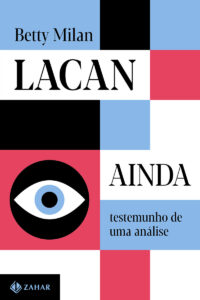
excerpt
“If my work with Lacan did not deliver me completely from anguish, it did change my life. It enabled me to accept my origins, my biological sex, and motherhood — thanks, on one hand, to the intensity that I perceived in his interest, and thanks, on the other hand, to his specific way of working, which provokes controversy to this day. In my analysis, Lacan relied primarily on the so-called short session. To testify to the crucial significance of this practice is why I wrote this book.”
synopsis
In Pourquoi Lacan, Betty’s Milan recounts her analysis with Jacques Lacan and bears witness to the efficacy of the specific practice that was fundamental to his way of working. Lacan was guided not by the time of Kronos — time as it unfolds or passes by — but by the time of Kairos — a fleeting moment giving rise to an opportunity that you must know how to seize. For Lacan, the discourse of the analysand took precedence over the time of the clock: as soon as something essential had been spoken, the session was over; the analyst’s job was done. The lesson taught by Lacan’s clinical practice was to not waste time, a lesson to hold onto now more than ever.
history
Pourquoi Lacan is the French version of Lacan ainda, first published in Brazil, where the book has had an acclaimed impact. The translation into French is by Danielle Birck. Published in France by les éditions Erès, the book received a formal “présentation” at Le Divan bookstore in Paris on September 14, 2021.
opinion
“It’s astonishing and almost miraculous that you’ve managed to evoke an analysis with Lacan with such clarity and precision. You almost make it read like a thriller. I read it once, then read it again, with curiosity, interest, and pleasure. You respond to all the questions that non-afficiandos might ask themselves about these mysterious sessions. At the same time, you talk about yourself like the model of an ideal analysand. And that is how the famous doctor must have thought about you as well. But the writer has succeeded in transforming such testimony into a work of literature.”
From Michèle Sarde to Betty Milan, August 7, 2021
¨I re-read your book very slowly. I confirm that it is easily intelligible to the uninitiated and to others hostile to psychanalysis. We have to admit that the theory has become a chic cultural commodity that’s consumed in a degraded way. And the degraded way of working with psychoanalysis in different professions and in different cultures has reduced applied psychoanalysis to a matter of opinion, in place of intellectual rigor. The simplicity of your formulations and the points articulated as a whole open onto a perspective that the ¨practice¨ of psychoanalysis, according to the practice of Lacan, is highly ambitious, while at the same time it lays claim to (or authorizes the analyst to assume) a certain ignorance or not-knowing.¨ I rejoiced in this re-reading. It is an excellent thing in writing to make its readers smart.”
From Jacques Barbier to Betty Milan, September 10, 2021
areas of interest
Psychology, Psychoanalysis, Sociology.


